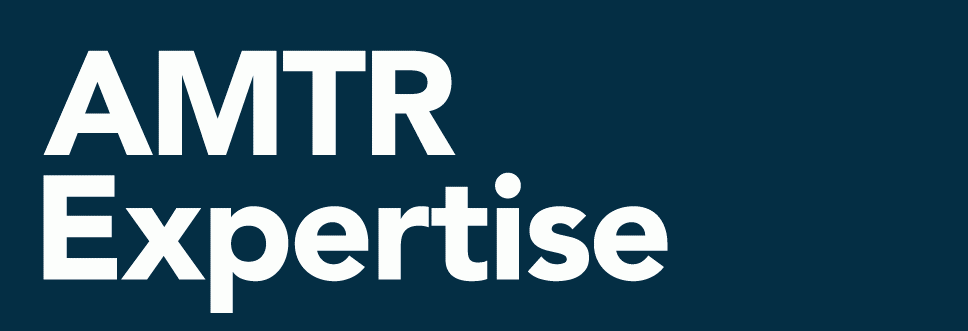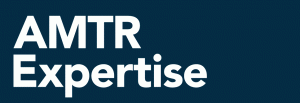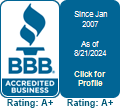The growth of e-commerce is driving the convergence of retail and distribution space. As e-commerce gains market share from brick and mortar stores, it is also increasing the demand for last-mile delivery service and public access pickup locations. Existing malls and shopping centers may provide a solution to more efficiently move goods to consumers, perhaps offering retail, pickup and delivery services from the same facility. As such, communities and zoning officials will face the opportunity to consider utilizing older and underutilized retail spaces to meet this demand, and real estate owners will likely work to find ways to make mixed-use retail/distribution sites acceptable to local residents.
AMTR has helped recover hundreds of thousands of dollars for shippers, even when the bills have been correct! Many shippers know the difficulty of dealing with multiple railroad carriers for a single shipment; either each railroad is paid separately, or one carrier is paid for the full interline move and is responsible for distributing the money to the other railroads involved. Shippers can benefit from either type of invoicing, depending on the lanes, negotiated pricing and volume.
AMTR has extensive knowledge of all the legalities and carrier-specific rules governing these movement types. We also maintain direct relations with all the major railroads to ensure our clients pay the lowest rates. There are many occasions when separate freight bills, which are governed by private pricing, might be preferable over a published through rate. Likewise, an interline rate paid to one carrier might turn out to be less expensive than separate invoices. AMTR has been successful in having carriers issue corrections to invoices or having them cancelled altogether. When it comes to these issues, just because the invoice is correct, does not mean the shipper paid the lowest possible amount on the full shipment.
At AMTR, auditing is more than just rubber-stamping bills. We look for the lowest rates, even when everything checks out on the bills. We will review the movement as a whole and we will not stop until we are certain there are no additional savings available.
This is the time of year to keep it cool, including shipments of heat-sensitive products. Shippers are hiring refrigerated trailers (reefers) or requesting temperature control services from LTL carriers in order to protect their products during transit. However, these specialized trailers come at a price, and carrier accessorial costs are steadily rising. According to DAT.com, spot market reefer rates climbed 8¢ from April to May, making the new average $2.02 per mile–13¢ higher than this time last year.
Shippers, keep your cool and your shipments protected by being proactive. Become familiar with your products’ unique characteristics and needs. Annotate bills of lading with any specific requests for temperature protection. Also, be aware of a carrier’s specific rules regarding requesting special temperature protection services. The rules provided by the carrier will likely be very specific, as the carrier desires to be fully informed of a shipper’s needs and to be protected from any damage liability. Be sure to follow any directions completely as prescribed.
Do not just protect your temperature-sensitive products, protect yourself from inaccurate freight billing charges with an After-Payment Freight Audit from AMTR!
At AMTR, the core of our business model rests on human knowledge. In addition to our in-depth proficiency with our customers’ freight operations, we also pride ourselves in the recognition of current industry “hot” topics. Whether it is industry happenings, announcements or trends, it is our job to stay on top of it and, moreover, to understand and apply it to benefit our customers where possible. Some examples follow:
-The acquisitions of short lines by Class I carriers, in addition to truck mergers, are likely to generate changes to rates and/or rules. We are always on the lookout for how such changes affect not only our clients’ current costs, but also accounts payable processes. When carriers are added, deleted or altered, duplication can become a problem during the transition phase.
-As subscribers to all carrier rules tariffs and support publications (such as RAILINC and the NMFC), we are in a unique position to help clients when they cannot program such verbiage or logic into their rate systems. We also find any application errors in freight invoicing regarding these changes after they become effective.
If your company lacks the time to focus on new industry knowledge, and especially to take advantage of it regarding improving freight processes and reducing freight costs, then it is time to call AMTR. Let us do the knowledge work, so you can reap the freight savings.
Shippers should become aware of the change to the mileage scales in UP Agricultural product tariffs. UP has announced that, in their efforts to simplify prices for mileage scale movements, as of July 1, they will expire the scale items within UP 17, UP 2028, UP 4050, UP 4051, UP 4053, UP 4427, UP 4907 and UP 4908 tariffs. This creates great potential for overcharges wherever rate engines are not updated properly or in time. AMTR is prepared to ensure invoices are calculated with the applicable mileage scales. Be sure to subscribe to this new mileage tariff, UP 2030.
A potentially powerful lobbying group called Americans for Modern Transportation was recently formed to “actively work to improve transportation infrastructure and policy to reflect, and meet, the growing needs of modern businesses and consumers,” according to trucking industry and supply chain expert Clifford Lynch. One of the group’s primary goals is to seek approval for the use of twin 33-foot trailers on U.S. highways—a highly debated topic in which some see efficiency opportunities while others see safety concerns. The group has commissioned a report stating their results show that the longer trailers would provide capacity, economic, safety and environmental improvement. According to Lynch, the approval of the larger trailers may possibly be “one of the few things passed by Congress this year.”
With over 35 years of auditing success, AMTR LTL freight audits are based on a high percentage of classification errors. Classifications can be difficult to decipher and assign. To better understand classifications, their purpose and the history, you first have to understand the entity that creates LTL classifications.
The Commodity Classification Standards Board was brought about by 49 U.S. Code § 13703 with an antitrust exemption to establish its own classifications. The CCSB investigates, initiates, considers and acts on matters affecting the provisions of the NMFC through the National Motor Freight Traffic Association. One of the 18 freight class options is assigned based on the product’s characteristics: density, stowability, handling and liability. If there are exceptions to these classifications, they can be found within a carrier’s rules tariff or included in a shipper’s pricing document.
Do not miss out on freight cost savings by having freight misclassified. Let AMTR’s expert team recover overcharges on classification errors affecting your freight invoices.
Commodities are sent to destinations for unloading repeatedly, usually with the emptied car returning to the origin. The return may occur within days, and other times, long afterward. Normally, these empty cars will return free of charge. However, exceptions do occur, and when they do, should this movement be chargeable?
All Class I’s and various other railroads have rules, both varied and complex, governing empty car movement contained within the RIC 6007 and in their own publications. The timeframe provided for free returns differs among carriers, usually being between 150 and 180 days. Select carriers provide rules that cover an empty return move to an alternate location, or movement into and out of repair and/or cleaning facilities. Of course, shippers can also develop contracts that better fit their specific needs.
It should also be noted that automated payment systems and rate engines do not handle exceptions well and can easily rate these empty movements in error, incurring unnecessary costs. AMTR’s expert auditors are well-versed in these rules and are able to devote the time and research to empty car movements.
SMART Auditors to the Rescue
At AMTR, we address the complexities of freight costs for our customers on a daily basis. These complexities are many and varied and consistently impact the movement and subsequent invoicing for freight. From billing errors, to innocent typos, to inaccurate interpretation of contract wording, no company is immune. Even the implementation of pre-audit and/or use of transportation management systems cannot guarantee error-free execution. Why? Problems are often unique and multifaceted, as the following examples demonstrate:
Example 1: Billing problem. A carrier’s standard rules tariff allows them to combine shipments between the same shipper and consignee on the same day. Each shipment is originally given a pro number, but the carrier may cancel one number and bill for both shipments on another. In another case, both freight bill numbers might be canceled and a master bill created. Either scenario may result in multiple payments. AMTR frequently recovers $1,000 or more per freight bill based on this issue.
Example 2: Publication errors or typos. AMTR has been instrumental in detecting missing lanes that were previously included in rate items or rates that seem to be in the wrong columns within a pricing document. We work with the carrier to get these errors adjusted in the next revision of the tariff. However, if both the carrier and the client load the wrong rates, then overcharges are virtually impossible to detect. We were able to recover over $35,000 for a client who paid the wrong rates while their lanes were being corrected.
Example 3: Inaccurate interpretation. The difference between “and” and “or” in rate condition notes can be great. An “or” statement means that two different instances can apply but many computer programs do not apply such logic correctly and humans often miss the intent of the condition statement. In one instance, the word “or” was worth a $70,000.00 overcharge claim!
The SMART auditors at AMTR know these scenarios–and countless others–well. We use expert knowledge and years of experience enabled by leading-edge IT to determine the correct freight costs for our customers. If you need a freight cost “rescue,” give us a call or email us today.
The Association of American Railroads reports that U.S. carload and intermodal traffic is continuing its upward trend in 2017, surpassing 2016 numbers by approximately 4.5%. Coal, grain and nonmetallic minerals all saw upticks in volume; however, petroleum and related products, motor vehicles and parts, and forest products fell somewhat over last year’s numbers. Canadian and Mexican carload traffic is reporting nearly 9% increases over last year, as well. Whatever the commodity, as a shipper, your freight costs are an important part of your financial landscape. Rules and regulations vary substantially by commodity, so it is important to be well informed. Here at AMTR, we have experts in every commodity. Whether you ship sand, steel, sugar or any other commodity, AMTR can help you make sure you are being charged the lowest carrier rates and billing errors are rectified quickly, boosting your bottom line.














